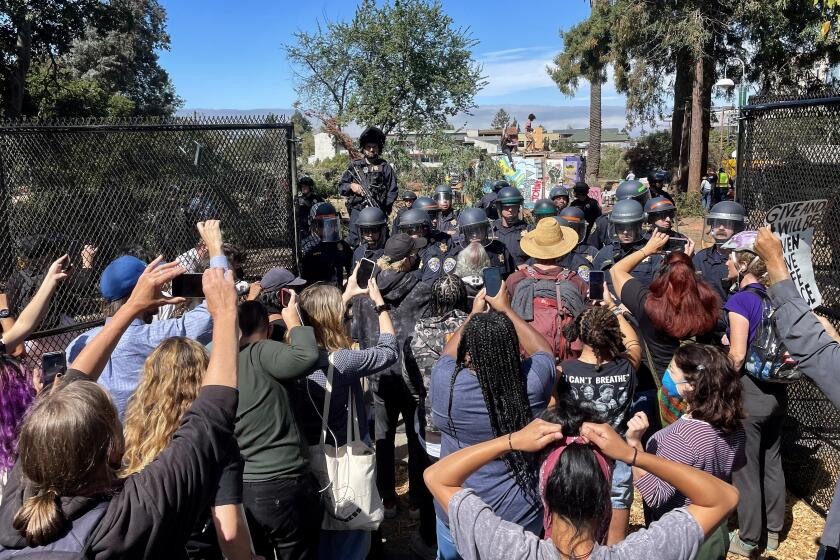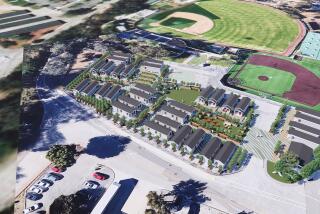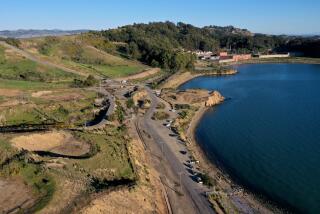Berkeley’s People’s Park is again in a fight for the ages, now over UC student housing
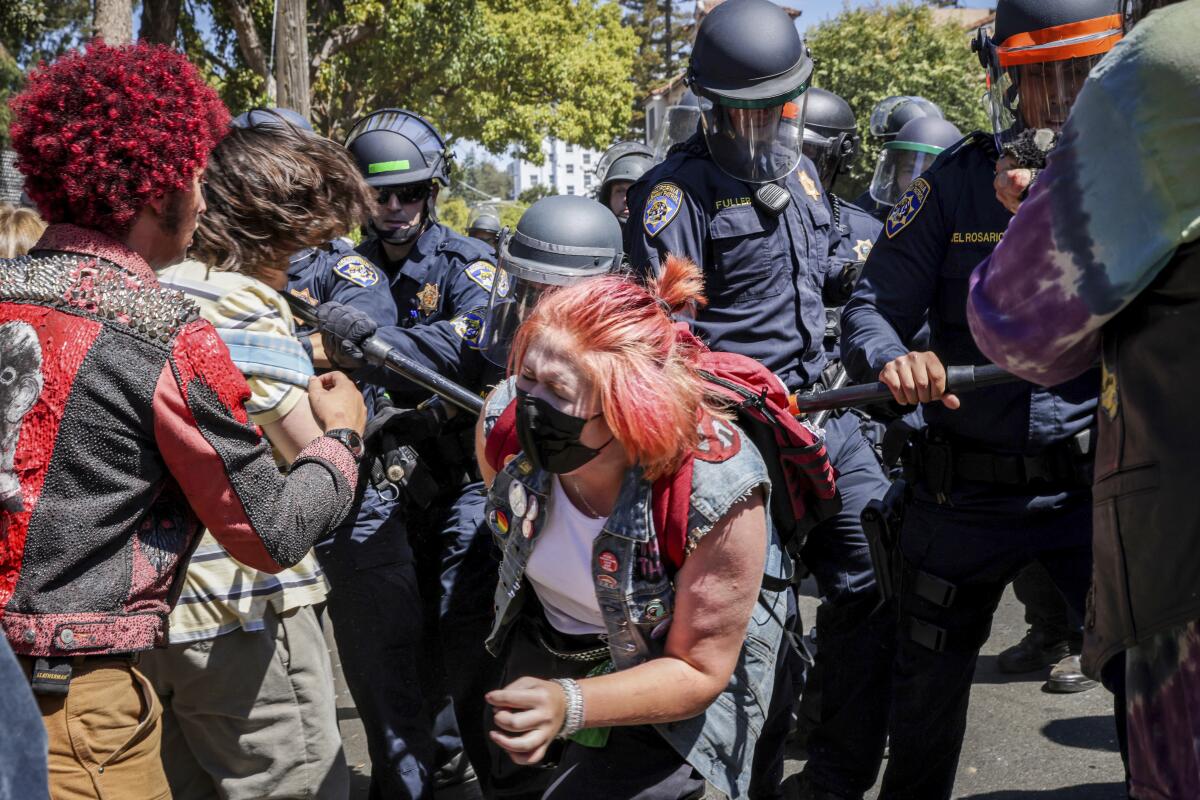
People’s Park — among California’s most contested and colorful patches of public land and a ‘60s era symbol of free speech and community power — is again embroiled in a battle for the ages, this time involving UC Berkeley, a key environmental law and the acute student housing shortage.
A state appellate court heard oral arguments Thursday over its tentative ruling last month that could delay UC Berkeley’s plan to build badly needed student dorms. If the tentative ruling is made final, it is likely to open controversial new paths that stand to obstruct housing developments statewide, legal experts said.
The tentative ruling stunned the university and drew condemnation from student leaders, lawmakers, Bay Area business executives and progressive law professors. In it, the 1st District Court of Appeal in San Francisco found that the California Environmental Quality Act (CEQA) required developers to analyze and mitigate a project’s potential “social noise’’ — in this case the noise generated by students who may drink, yell and hold loud “unruly parties,” as some neighbors have complained in documents submitted to the court. UC Berkeley failed to adequately assess this potential impact, the court said in its tentative ruling.
Though the law requires an analysis of potential noise generated by a stadium project, for instance, the ruling marked the first time a court held that the behavior of a particular group of people whom a housing development might bring into a neighborhood must be assessed, according to University of California attorneys.
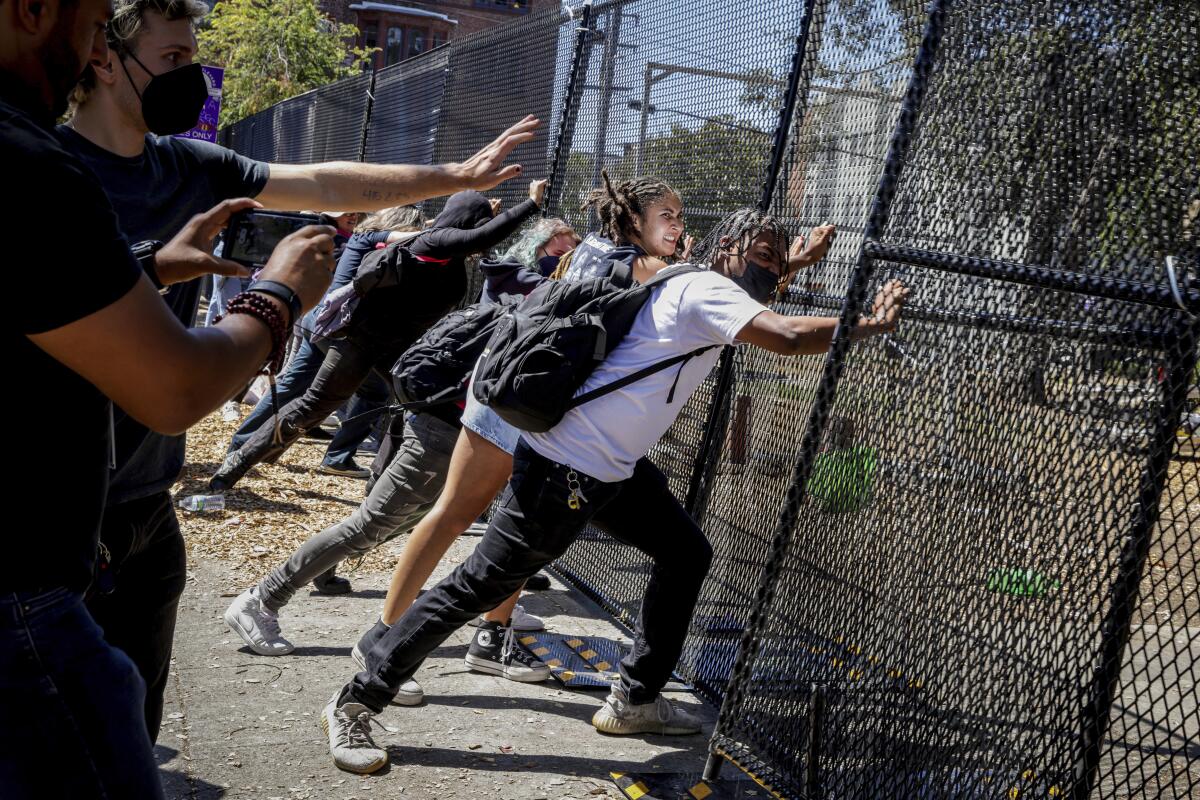
“This would make CEQA a dangerous and powerful tool for any neighbor that does not like the social habits and customs of potential new residents,” Nicole Gordon of the Sohagi Law Group, which is representing UC, argued in a Jan. 3 letter to the court. “It is unfortunately easy to imagine this new ‘CEQA impact’ being applied to perpetuate prejudice and stereotypes ...”
The tentative ruling also found that UC Berkeley failed to sufficiently analyze how its long-range plan for land and infrastructure development through 2036-37 could potentially displace some city residents and cause more homelessness by increasing its campus population without providing enough housing.
Developers have never before been required under the environmental law to consider a proposed project’s “indirect displacement” of residents and potential effect on gentrification and homelessness, Gordon said.
An earlier trial court ruled that UC was not required to assess either social noise or indirect displacement, agreeing with the university that trying to predict the behavior of future students or the housing needs of future campus members was too speculative.
But the appellate court in its tentative ruling disagreed — and also found that UC had failed to adequately consider alternatives to housing in People’s Park. The three-person panel focused heavily on the noise issue in its 80-minute hearing Thursday. The judges asked pointed questions to both sides about whether a group’s potential behavior was fair game to assess, for instance, and the intent of legislators in including “noise” — though not explicitly “social noise” — as an environmental impact to be evaluated.
The judges did not indicate when they would issue a final ruling.
Thomas Lippe, attorney for the two nonprofit groups that brought the lawsuit against UC, said criticism that the ruling will allow project opponents to “weaponize” CEQA to keep out people deemed undesirable was “overblown rhetoric, not based in reality.”
He said the ruling would not stop the People’s Park project but only delay it until UC did the analyses he argued should have been done in the first place. He also said state laws protect against housing discrimination and that the California Environmental Quality Act offered a democratic way for people to know the environmental consequences of their government’s decisions on them before they are made.
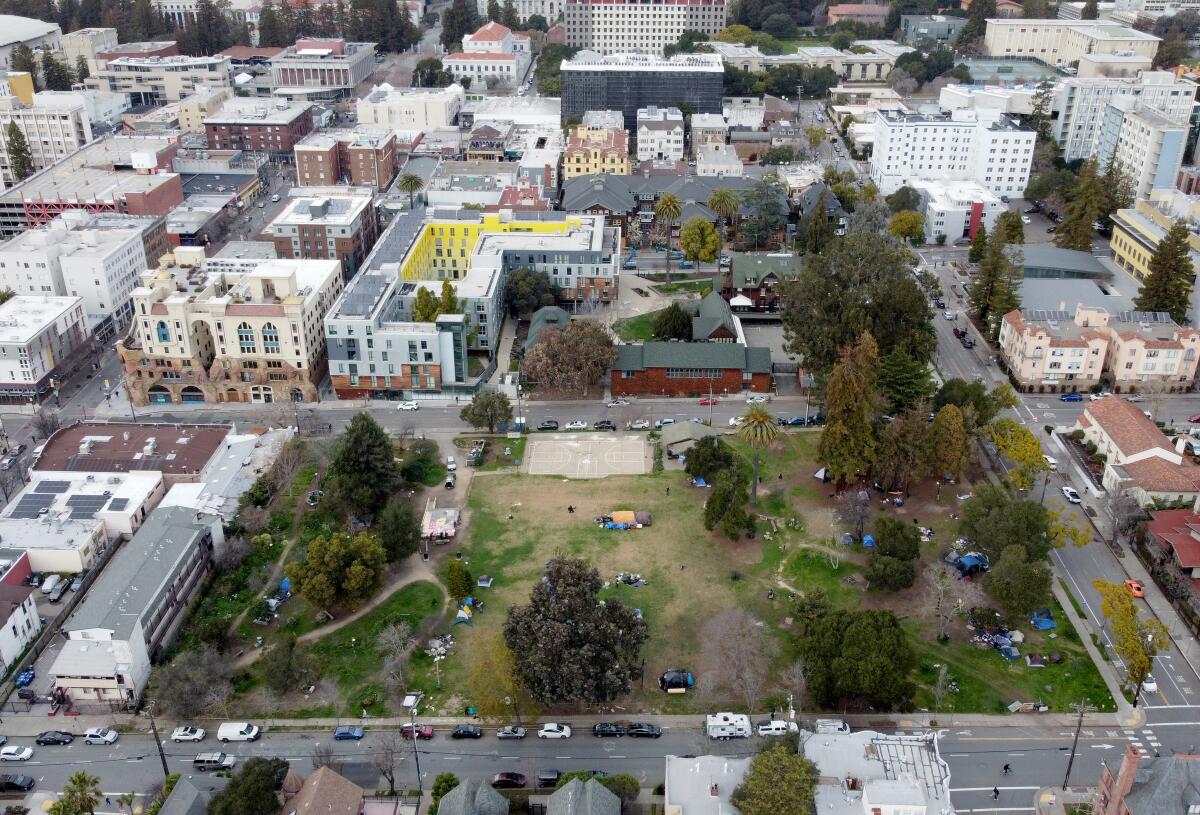
“It’s UC’s own decision-making that has led to a situation where there’s a temporary delay in the building of housing in People’s Park,” he said.
The legal brouhaha marks the latest setback for the People’s Park project, first unveiled in 2018 by UC Berkeley Chancellor Carol Christ. The park, three blocks south of the main campus, became a national symbol of people power in 1969, when hundreds of people hauled sod, trees and flowers to a scruffy lot that the university intended to build on and proclaimed it their own park.
After UC fenced the public out a few weeks later, thousands of protesters marched to the site and clashed violently with law enforcement. The space had become a community gathering space, but over the years the site deteriorated with trash, rats and crime. In the last few months, two bodies were found in the park.
Christ said the controversial land has long been a “third rail” that campus leaders avoided addressing. But the dual crises of an acute student housing shortage and growing numbers of unsheltered residents, many of whom lived in the park, moved her to act. Her solution was to recraft the space to provide dorms for 1,100 students and supportive housing for 125 low-income residents, along with an open green meadow and commemorative exhibits about the park’s storied history.
But the plans have been stymied by protests against construction last August, followed a day later by the appellate court’s injunction temporarily halting all work at the site. The court issued the tentative ruling four months later on Dec. 22.
A fence went up overnight, and a vocal crowd showed up Wednesday at Berkeley’s People’s Park, eventually reoccupying the property.
Christ, in an interview, said the project at People’s Park — the university’s largest piece of land available for new housing — was “essential” to her commitment to double the number of beds for students within 10 years. Berkeley is able to house only 23% of its students, the lowest share among the UC system’s 10 campuses, she said. With Berkeley rents averaging $3,300 for a 700-square-foot apartment, the scarcity of campus housing has forced many students to cram into shared spaces, make long commutes from lower-cost neighborhoods or endure the constant instability of couch-surfing, living in cars or sleeping on the streets.
She said she was frustrated by what she sees as the misuse of the California Environmental Quality Act to impede housing development and would not give up on the project. “I am deeply committed,” she said. “I think it’s the right thing to do.”
Others expressed outrage. The UC Student Assn.’s 42-member board representing 230,000 students unanimously passed a resolution Saturday condemning “the anti-student community groups that have historically weaponized CEQA and its legal processes to stall or kill student housing projects.” It called on UC to defend students’ rights to their education and campus housing and urged state legislators and courts to help them “exist in the communities surrounding their campuses.”
The student association has not taken a stand on the People’s Park project specifically but campus officials say the majority of students surveyed by an independent agency last May supported it by a margin of 62% to 27%.
Matt Regan, a senior vice president at the Bay Area Council of more than 330 large employers, said if the tentative ruling is finalized, it would be “potentially disastrous” for the region’s well-being. He said UC Berkeley and Stanford were two of Silicon Valley’s biggest engines of economic growth and innovation but that the California Environmental Quality Act CEQA has been used to block housing projects at both campuses.
The lack of affordable housing is the single biggest barrier to drawing talent to the area needed for businesses to expand, he said — adding that the tentative ruling’s expansive interpretation of the California Environmental Quality Act will make it even more difficult to ease the shortage. Even the threat of litigation, Regan said, will give developers pause as to whether building housing in urban areas such as Berkeley would be worth the costs.
Rigel Robinson, the Berkeley city council member whose district encompasses the campus and People’s Park, said those involved in the litigation did not represent sentiments among city leaders, who have unanimously backed the project and pledged $14 million for the supportive housing.
“This could have frightening implications for frankly all new housing development in California, particularly affordable housing,” said Robinson, a UC Berkeley graduate student in public affairs who also served as an undergraduate student government leader before graduating in 2018.
State Sen. Scott Wiener (D-San Francisco) said constant litigation over campus housing projects led him to propose legislation to exempt them from CEQA review under certain conditions. The exemption, which applies to housing projects on land owned by UC, California State University and California Community Colleges, was signed into law last year but does not retroactively apply to People’s Park. UC would have to adopt a new environmental review relying on the exemption, which could further delay the project.
Leaders of the two nonprofits that filed the lawsuits, however, said their intentions have been misconstrued.
Lesley Emmington Jones, a longtime preservationist whose family has lived in Berkeley for nearly eight decades, said she formed Make UC a Good Neighbor in 2019 to fight the project because she feared that building large housing structures in the park would harm the historic character of the area and that the university failed to look into alternative sites.
Harvey Smith, president of the People’s Park Historic District Advocacy Group, said the park was one of the densely populated city’s few open spaces and should remain that way. He also said the 11-floor dorm and supportive housing would negatively affect the area’s historic buildings by throwing shadows on them and destroying sight lines.
“We’re not about opposing student housing; this is not about us being NIMBYs,” Smith said. “We’re about preserving history and open space.”
But Gordon, the attorney for UC, said far greater interests were at stake.
“If the Tentative Decision were to become law, it would delay UCB’s housing program indefinitely, stymie the long-planned People’s Park student and supportive housing project, directly undermine the State’s housing policies, and increase the significant, adverse environmental impacts that result from insufficient urban housing,” Gordon wrote to the court.
More to Read
Sign up for Essential California
The most important California stories and recommendations in your inbox every morning.
You may occasionally receive promotional content from the Los Angeles Times.
